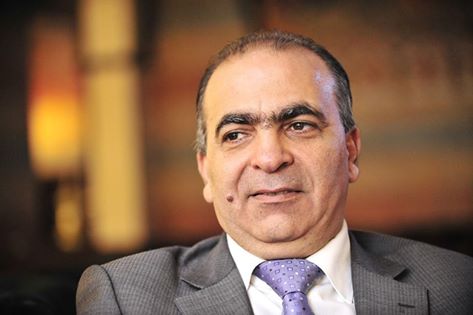It is clear the the position of the countries supporting the Syrian military and political opposition are no longer insistent on President Bashar al-Assad's departure as a prerequisite to any solution.
Turkey has declared this position since the start of its coordination and alliance with Russia, whose forces are currently occupying the most Syrian territory and who is still insisting upon Assad remaining. This is part of the agreement Ankara made with the Russians, completed on the basis of exchanging Turkish silence over the elimination of opposition military forces in Aleppo for allowing the Turkish army to enter Syrian territory and occupy a security belt inside it.
The United States, despite its strike on Shayrat air base and the harsh statements against Assad from President Donald Trump after the chemical attack in Khan Sheikhoun — describing Assad as a criminal, tyrant and murderer — and despite the firm stance toward him from most officials in the American administration, Secretary of State Rex Tillerson was clear in his statement that the departure of the Assad family from power in Syria needs to be orderly and that the U.S. country is not making his departure a condition before a transitional stage.
The positions of both Turkey and the United States were followed by the French position, as President Emmanuel Macron was explicit when he said that Assad was a war criminal and a killer but that he was not an enemy to France but rather to the Syrian people, who were the victims of all his crimes. He said that France no longer considered Assad's departure before the start of the transitional phase to be among its priorities.
Of course the positions of the remaining European countries are no different from the French position, as they believe that Assad's departure before the end of preparations for a transitional stage will lead to chaos across all of Syria, which could lead to more waves of refugees and the possibility of terrorist organizations taking control of more bases in Syria.
Until recently, and even in the last round of negotiations, the Saudi-Qatari position was more insistent and committed to the need for Assad's departure before beginning the transitional phase. But recently the Saudi foreign minister notified the opposition High Negotiations Committee that the body had to come out without a new vision or the great powers would look for a solution elsewhere, while also informing them that the demand for Assad to go before the transitional phase was no longer realistic and the length of his tenure during the transitional phase and his relevant powers should be discussed.
Everyone who saw the items of Geneva 1 fully noticed that Assad's fate was kept ambiguous and that he was not discussed within this statement, and that indeed the statement stipulated the formation of a transitional governing body as follows: "The establishment of a transitional governing body which can establish a neutral environment in which the transition can take place. That means that the transitional governing body would exercise full executive powers. It could include members of the present government and the opposition and other groups, and shall be formed on the basis of mutual consent."
It is clear that the balance of military and political powers since the Russian intervention in Syria has made the Saudi foreign minister’s statements to the opposition High Negotiations Committee at least two years late. If there had been independent Syrian political entities who had concluded this at that time and worked on that basis and led negotiations with greater political and professional intelligence, it may have led to an end to this destructive war with a lower price than what we have now paid.
Assad's fate will not be decided for certain before the removal of the danger of Syria falling into the hands of religious extremists, who so far have comprised the only realistic alternative to Assad's tyranny in the event that he was removed from the Syrian scene. But Assad certainly will not be part of Syria's future after the end of the transitional phase, except as a dictator imposed by occupying forces who cannot secure the country's stability. Indeed, he will be a justification to create more, diverse resistance movements demanding that Syria be rid of him, after the crimes he has committed and the pain he has caused for the majority of the Syrian people.
The mission of any Syrian authority that will work on negotiations for a political solution is to focus strongly on the need to create a transitional stage without Assad being able to kill, arrest and torture, whereby refugees can return securely to their homes and members of the transitional body will not be subject to assassinations and arrests by Assad's agencies of repression. This is something that requires international agreement on an international force undertaking the tasks of Assad's security agencies and overseeing the safe return of refugees and preparations for a free vote on a suitable constitution and free elections, returning decision-making power to Syrians to end 50 years of mafia rule by the Assad family and all its crimes and tragedies.
This article was translated and edited by The Syrian Observer. Responsibility for the information and views set out in this article lies entirely with the author.


